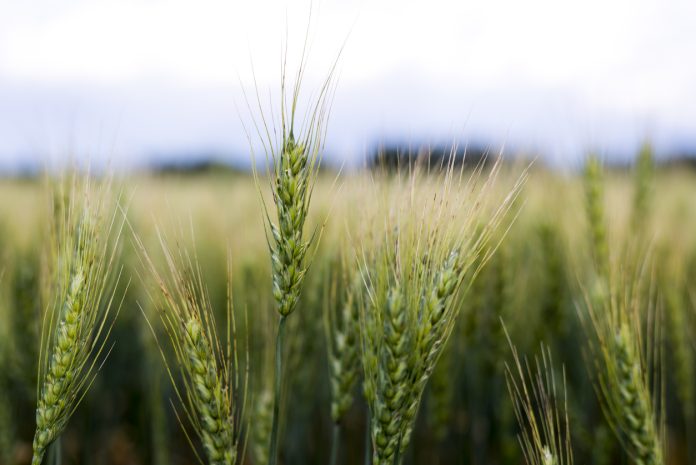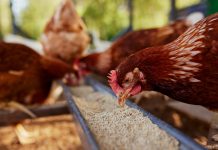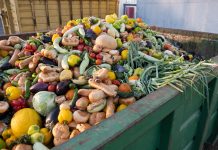Aarthi Janakiraman is Research Director of the Advanced SciTech Division at Everest Group. Here, she focuses on how agritourism is transforming Alberta’s agriculture sector
Alberta, Western Canada, is well-known for its diverse agricultural practices, the cornerstone of its economy. It encompasses extensive crop cultivation and large-scale livestock farming, as its climate and geography are conducive to both. The region leads in producing wheat, barley, canola, and other notable crops, including oats, peas, and other horticultural products.
Considering the pivotal nature of its agricultural sector to its and the country’s economic landscape, various efforts and initiatives are deployed, including Sustainable Canadian Agricultural (CAP) programs and the Agri-Processing Investment Tax Credit, to stimulate economic growth and enhance competitiveness. The region is also at the forefront of embracing technological innovations to foster precision agriculture, biotechnology, data analytics, automation, and sustainable farming practices to enhance productivity and efficiency.
Agritourism: Contributing to the diversification of traditional agricultural framework
Agritourism is gaining importance in Alberta’s agricultural industry to improve community engagement, innovation, and sustainability. It provides an opportunity for economic diversification, reduces reliance on commodity markets and public education, and even preserves agricultural heritage, apart from providing farmers with an additional revenue stream. The berry industry contributes significantly towards diversifying Alberta’s agricultural portfolio, with strawberries, raspberries, saskatoons, blackcurrants, and others being predominant.
Agritourism provides berry producers with an opportunity for increased market access; U-pick and farm tours and on-site sales are popular as they allow consumers to gain educational experience and engage in farming practices; it also provides an opportunity for farmers for direct marketing and creating brand loyalty. It enables portfolio diversification with farmers offering baked goods, jams, jellies, etc. Activities such as farm stays, tasting events, and workshops provide additional revenue while increasing appreciation towards local produce and the importance of agriculture.
The preceding years have seen agritourism in Alberta evolve from a niche, one-off event to a significant supplemental enterprise for many farmers. This has resulted in new business operations integrated with existing farming and production practices. The expansion has also provided an opportunity to mitigate risks by reducing dependence on crop yields and fluctuating market prices.
Agritourism has given berry farmers an especially advantageous opportunity to explore multifaceted business models that aren’t dependent on traditional agricultural operations, contribute to improving economic resilience, and promote sustainable agricultural practices.
U-pick operations have become extremely popular within the berry industry, allowing farmers to reduce harvesting costs and provide market differentiation by organizing consumer-centric activities. For instance, farms such as Horse Hill Berry Farm in Edmonton and Prairie Gardens in Bon Accord provide U-pick options, field trips, and other family-oriented activities.
Culinary tourism is another façade within agritourism that allows local businesses to collaborate with farmers to offer farm-to-table experiences using indigenous ingredients and host culinary events, workshops, and festivals that boost local businesses and the economy.
Alberta’s agriculture sector: Challenges and the way ahead
Despite its numerous benefits, agritourism isn’t without its inherent challenges. Infrastructure limitations, balancing day-to-day agricultural operations with agritourism activities, and resource constraints require significant capital investment and are time-consuming. Regulatory compliance, primarily related to health and safety regulations and standards, liability insurance, etc., can be complex, and farmers often need guidance on risk management and seeking appropriate insurance measures to encompass the intended agritourism activities. Seasonal limitations of crops also allow only a short window for organizing these activities, adding to its complexity.
Addressing these challenges necessitates targeted and collaborative efforts to develop supportive policies, develop infrastructure, and provide educational resources for farmers related to risk mitigation, marketing, etc., to foster sustainable growth of agritourism.
Raising awareness through marketing and promotional activities in collaboration with tourism boards has been successful and can be extended to organizing year-round activities with other stakeholders.
Local governmental support to identify opportunities, such as efforts initiated by Alberta’s Municipal Affairs and revisiting policies to make it more friendly to agritourism, can go a long way in sustaining agritourism activities.
Tax incentives and breaks to support agritourism activities, efforts such as Community Futures Rural Opportunities Fund that aims to support local businesses with financial resources and training aid, collaborative marketing support, alliances to promote agritourism such as Foothills Tourism can help farmers in organizing and sustaining agritourism operations.
Alberta’s agriculture sector: Conclusion
Alberta’s agritourism is an example of a dynamic expansion of the traditional agricultural sector towards one that provides economic diversification, community engagement, and cultural preservation. Innovative approaches undertaken by farmers aided by support from local businesses and governmental incentives have made it an intensive operation that has contributed significantly to the province’s economy.
A collaborative approach from various stakeholders to address challenges can help to make it a sustainable, thriving sector that can benefit the community and the broader economy. Successful agritourism ventures in the province can increase the interest to mimic the business model in other provinces and countries, offering farmers an opportunity for additional revenue generation and allowing consumers to familiarize themselves with agricultural activities that can help in educating them about the importance of agriculture and its role in nation’s economy.
Sources
- Sustainable Canadian Agricultural Partnership – agriculture.canada.ca
- Alberta Agri-Processing Investment Tax Credit | Alberta.ca
- Beginning berry production – Open Government
- HORSE HILL BERRY FARM – u-pick raspberries, horse hill berry farm, Edmonton
- Prairie Gardens & Adventure Farm | Bon Accord, Alberta
- Rural culinary experiences boost Alberta tourism – Canada.ca
- Alberta Open Farm Days | Farm Tours, Culinary Experiences
- 8-23S – Provincial Review of Agribusiness and Agritourism – RMA
- Community Futures Pan West
- AGRITOURISM TO PROTECT THE AGRICULTURAL HERITAGE OF THE FOOTHILLS
– Culinary Tourism Alliance











